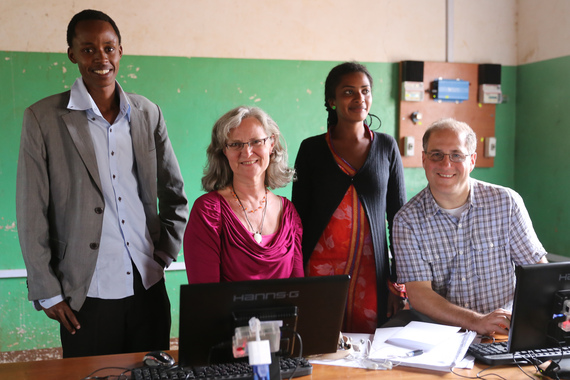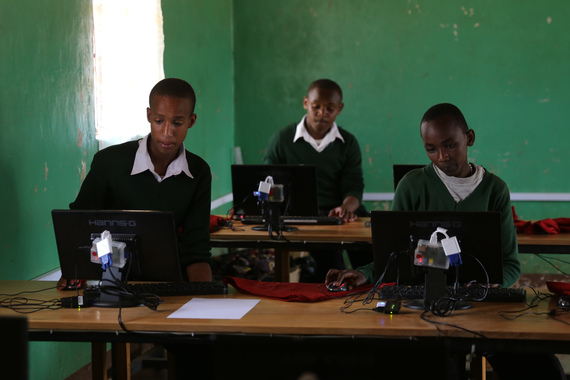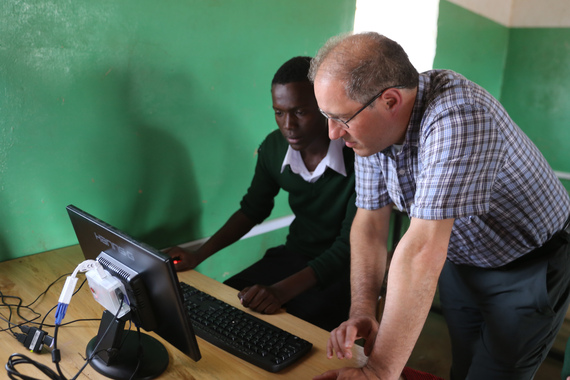The Season of Giving Back
Posted: Updated:
A Guest Post by Rich Segal, Segal Family Foundation Board Member
The holiday season is all about giving. It reminds us to be thankful for what we have and to give back to those in need. Surrounded by friends and family, it's easy to feel a strong sense of gratitude and a desire to be philanthropic.
With all of life's demands, sometimes volunteering our time and making donations to worthy charities fall off our radar. As a Board Member of the Segal Family Foundation (SFF), a charitable foundation my father founded to help grassroots NGOs in Sub Saharan Africa achieve their vision of development in their communities, I am fortunate to be able to make a positive impact all year-round. Basic needs, such as educating children and medical care, require continual attention, money and time.
Through my years on the Board of the Segal Family Foundation, I have leveraged my skills and interests as a computer scientist to help communities in need. At SFF, I was introduced to one of our partners, Powering Potential, and I found my way to give back throughout the year.
Powering Potential works with government secondary schools to build solar-powered computer labs in rural Tanzania. Bringing technology to rural schools is no easy task. The schools targeted by Powering Potential have no electricity, the teachers have minimal to no computer experience, and cellular service is spotty at best. Each Powering Potential computer lab consists of twenty Raspberry Pi computers, a local area network, a projector, a web server with a local copy of the RACHEL educational content from worldpossible.org, and the solar-power required to run it all.
The energy-efficient Raspberry Pi computers with monitors require just 10 watts of electricity each and provide a fully capable computer suitable for viewing Khan Academy videos, running Libre Office, and teaching computer programming. The Raspberry Pi is perfect for rural Tanzania as it has no moving parts. The Pi's use SD cards for storage and are passively cooled with no fans to break down.
Powering Potential puts a world of knowledge in the hands of teachers and students. What impresses me most is how its team of volunteers and professional staff engage with each school district, making them a partner in building and deploying the computer lab. To participate in the program, each school must provide a secure, dedicated classroom and desks for the lab. The computers are delivered in two phases. In the first phase, a solar-powered lab with five computers is installed, and the teachers and students are trained. Before the full lab of twenty computers is installed, the school is required to hire a full-time computer instructor and to commit to offering the national Information and Computer Studies (ICS) four-year curriculum. In addition to teaching the students how to use computer technology, the ICS courses helps ensure the computers have a purpose and are continued to be used years after they are installed.
The Powering Potential computer labs motivate teachers to take a new interest in their work. Science teachers are using the Khan Academy videos to help students learn advanced subject matter. Schools participating in Powering Potential's Educating-Through-Technology program report both increased student enrollment and substantial increases in the number of students passing the Form V entrance exams, which determine who qualifies for upper-level classes.
With the holiday season upon us, I remain thankful for what I have. I am extremely thankful for my dad, Barry Segal, and Powering Potential for giving me the opportunity to make a positive impact on others. For NGOs like Powering Potential with tight budgets, I marvel at all the good it does with such limited resources. I am honored and privileged to be a part of this organization as it grows and improves the lives of children in Tanzania.




